Bohemian rhapsody
The San Francisco Opera’s summer season got under way with a stylishly beautiful "La Bohème"
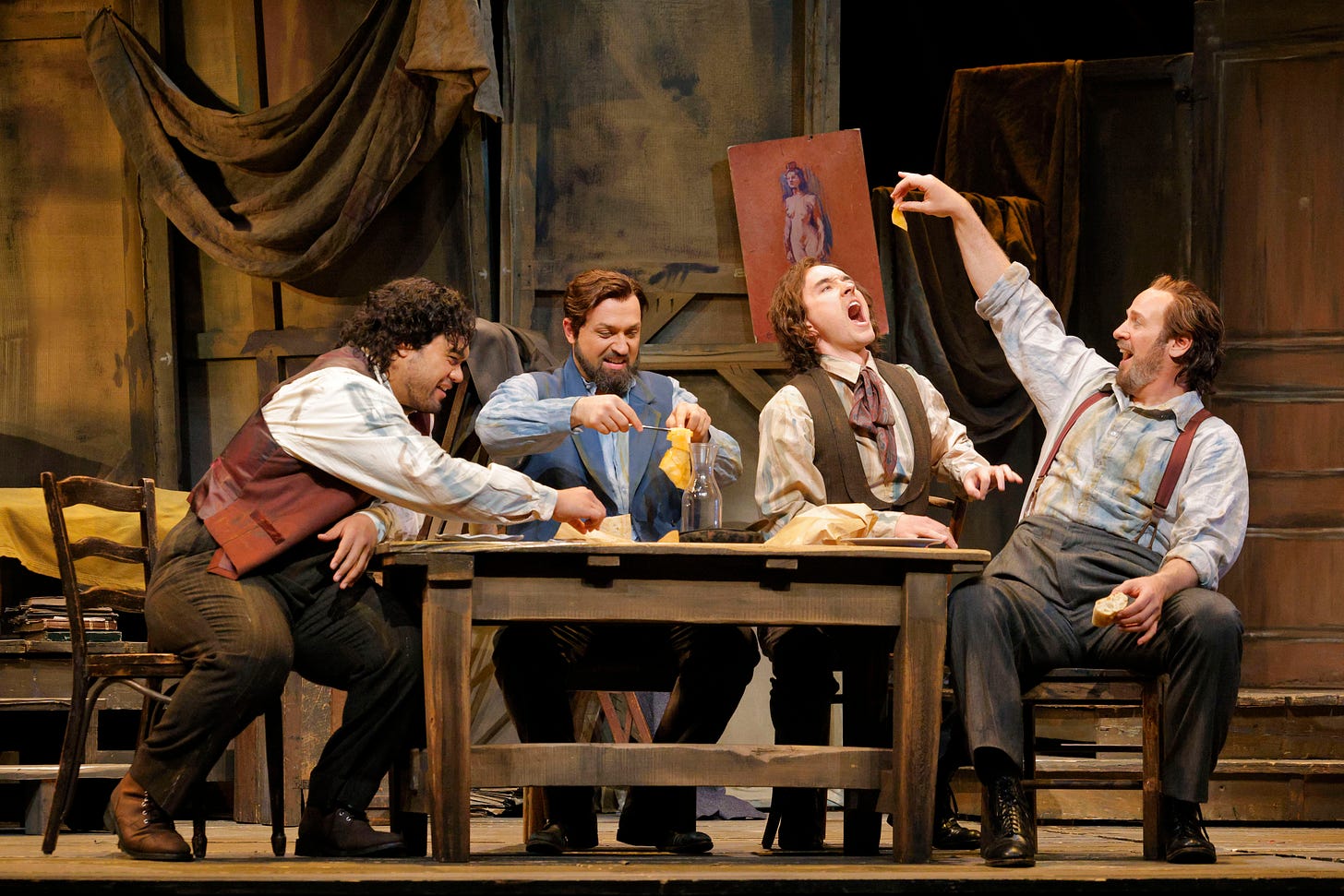
The Bohemians are back. Sometimes it feels as if they’d never left. I say that as if it were a good thing, because it is.
Puccini’s La Bohème, which returned to the War Memorial Opera House on Tuesday night, is never far from any operatic stage. It’s the piece that companies like the San Francisco Opera return to again and again — because it’s always guaranteed to sell tickets, of course, but also because its popularity is entirely merited. There’s no artistic compromise involved. The score’s lush, gorgeous melodies lodge themselves in your brain and insist on keeping you company for days afterwards. The penniless artists and good-hearted gold-diggers who keep themselves warm through the Parisian winters by making love and angling for commissions never fail to win your heart.
All it takes, really, is an array of singers who can invest their roles with the requisite combination of vocal splendor and theatrical resourcefulness, and Tuesday’s cast — the first of two sharing this extended run — rose beautifully to the occasion.
Some of the evening’s successes could have been confidently predicted in advance. As Rodolfo, Pene Pati’s florid, luminous tenor sounded as graceful and natural as ever, and he shaped the role with his characteristic offhand charisma; he delivered “Che gelida manina” with such conversational ease that you could understand instantly why Mimì falls for him so hard and so swiftly. Baritone Lucas Meachem’s Marcello was robust of tone and full of swagger; his artistry just gets stronger and more commanding with each passing year. The two men joining forces for the rueful duet that opens Act 4 was a heartbreaking tour de force.
Less foreseeable but equally welcome was the tender, ardent Mimì of soprano Karen Chia-ling Ho, who has so far only been heard here in Bright Sheng’s Dream of the Red Chamber (both its 2016 world premiere and the revival six years later). Ho’s sound is sweetly crystalline, but it blossomed into full-throated velvet for “Addio, senza rancor” in Act 3. Soprano Andrea Carroll, in her company debut, was a tart, vocally tangy Musetta, and baritone Samuel Kidd, an Adler Fellow I’ve been keen on since his Merola days, brought welcome pizzazz to the role of the musician Schaunard. I enjoyed Katherine M. Carter’s staging of the venerable John Caird production, particularly a hilarious bit of stage business leading into the opening notes of Musetta’s Waltz in Act 2.
There’s just one drawback to this lovely revival, but unfortunately it’s a doozy: In the pit, Ramón Tebar served up some of the weakest, most ill-judged conducting the War Memorial has witnessed in a long time. Tebar’s signature move was an uncomfortable double whammy that involved slowing the tempo to a crawl in a misguided attempt to infuse a melodic line with expressive urgency, and then blurring every downbeat so as to rob the results of any rhythmic profile. (From the audience, you could see his left hand twisting and flopping around like a dying fish.) And when he did let the music move at a brisk pace, the results were often clattery and out of joint. This was Tebar’s second appearance with the company, and out of curiosity I checked to see what I’d had to say about his 2023 company debut in Donizetti’s Elixir of Love. The ominous answer turned out to be, absolutely nothing.
La Bohème: San Francisco Opera, through June 21. www.sfopera.com.
Elsewhere:
Lisa Hirsch, San Francisco Chronicle/SFCV: “In tenor Pene Pati and soprano Karen Chia-ling Ho, the company has an ideal pair of leads. Pati’s natural charm and beautiful, easy sound light up everything he does…Meanwhile, Ho’s shyness and fragility at her character’s first entrance on Tuesday grew into real strength over the course of the opera, supported by her big, dark and beautifully controlled voice.”
Gabe Meline, KQED: “Confession time: I have never truly loved La bohème. Like nearly any major commercial work of art that purports to chronicle the broke-artist substratum, it feels written from a place of easy contentment. Tonally, it’s not desperate and insane enough to me, and to my own years of living in unheated attics, laundry rooms and garages.”
Harvey Steiman, Seen and Heard International: “The four artistic young men interact with realistic bumptiousness, and each has distinct characteristics. We can tell by how they carry themselves and their gestures which one is a writer, painter, musician or philosopher. Mimì is dressed plainly but her youth shows through. Musetta is a comic delight in a tight-fitting and ruffled pink gown.”
Stephen Smoliar, The Rehearsal Studio: “What is significant about this production is how Caird’s staging keeps the viewer focused on the contexts in which the fates of the characters themselves progress.”
Condensed Milk
When Stewart Wallace and Michael Korie’s opera Harvey Milk had its world premiere at the Houston Grand Opera in 1995, and again when the San Francisco Opera presented it in a revised version a year later, it landed as an unwieldy but often touching treatment of a story that very much needed to be told. Charting the life story of the visionary activist who did so much to forge the rise of gay rights from the 1970s onward, the piece captured much of what was crucially significant in Milk’s career. But it was also a lumbering and graceless affair — cast in three long, overstuffed acts, uncertain about where to focus its attention, and set to music that rarely illuminated the inner lives of its characters.
The revised version that opened Saturday night in a skillfully rendered production by Opera Parallèle, under the title Harvey Milk Reimagined, might have been an opportunity to address those issues. The opera has been whittled down from three acts to two, and a number of minor characters from the milieu of decades-old San Francisco politics have been jettisoned. Yet the dramaturgy remains lumpy. The opera still casts its net too wide, it’s just that now it skims over dramatic episodes and conceptual premises without ever quite probing them deeply enough.
There is, after all, an enormous amount of material to cover. There is Milk’s entire pre-California life, including his childhood growing up in the shadow of the Holocaust; his simultaneous discovery at the old Metropolitan Opera House of both opera and the mysteries of gay life (in the wonderful set piece “Who are these men without wives?”); and the galvanizing effect of the Stonewall Riots. Once the action shifts to San Francisco, both Dan White and George Moscone demand to be dramatized, along with the push and pull of City Hall politics. And that’s even before we get to the assassination or Milk’s legacy.
It's too much! Some of the individual episodes land with a telling impact, including White’s whining aria of self-pity about the economic challenges of serving on the San Francisco Board of Supervisors (“Beans and franks!”) and especially Harvey’s climactic moment of realization that he can be as fearlessly self-assertive as a gay man as he can as a Jew. But Harvey Milk Reimagined, which was first staged in 2022 at the Opera Theatre of St. Louis, hasn’t gained focus as it slimmed down; it just treats each component of its expansive landscape more superficially. And although Wallace’s score rises to the big expressive moments, it sags and loses traction amid the endless talkiness of New York social life or San Francisco politics.
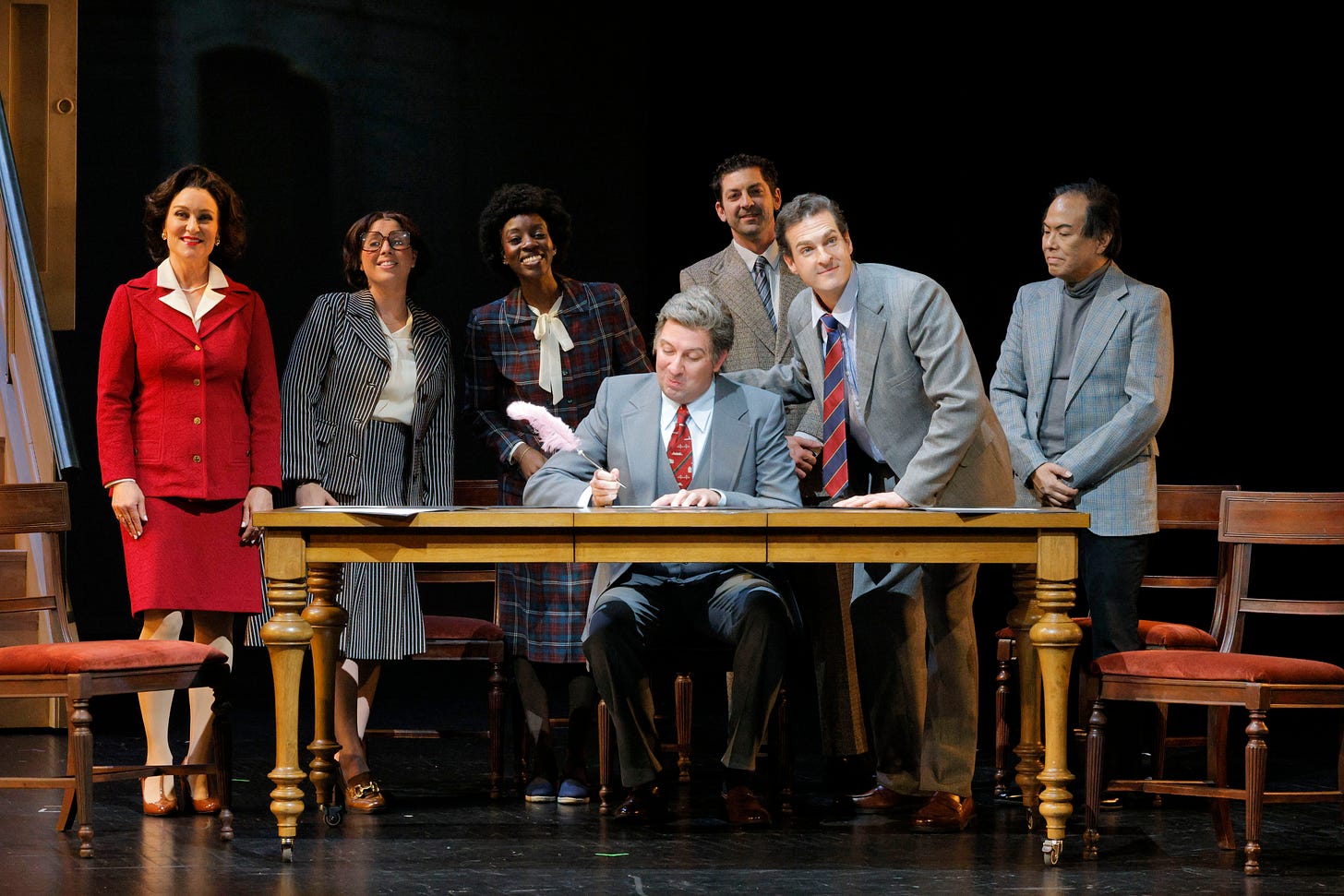
The Opera Parallèle production boasts an eloquent performance by baritone Michael Kelly in the title role, as well as a virtuosic turn as Dan White by tenor Christopher Oglesby, who makes the role’s punishingly high writing sound like child’s play. Tenor Curtis Resnick is a standout, too, as young Harvey, giving voice vividly to the boy’s blend of confusion, shame, and growing confidence. Yet neither their contributions nor the fluid, authoritative conducting of general and artistic director Nicole Paiement makes the work stand as the tribute Milk deserves.
Harvey Milk Revisited: Yerba Buena Center for the Arts, through June 7. www.operaparallele.org.
Elsewhere:
Lisa Hirsch, San Francisco Chronicle/SFCV: “The result feels too compressed and overstuffed, crammed with so much incident in its two hours that Milk himself, here portrayed by the sweet-voiced baritone Michael Kelly, feels out of focus. There’s a lot of throat clearing and scene setting before his character is settled in San Francisco and running for office.”
Gabe Meline, KQED: “Wallace’s score is welcomingly modern-but-not-cumbersome, with copious portamentos and bent notes. (If this is meant to imply “not straight,” my hat is off.) Korie’s libretto, meanwhile, captures Milk’s humor and earnestness — and occasional discomfort.”
Harvey Steiman, Seen and Heard International: “Impressive voices in all the major roles and vital conducting by Nicole Paiement brought out the emotional intensity of the music.”
Caroline Crawford, Bay City News: “Harvey Milk Reimagined is packed with references to Milk’s Jewish faith; the Holocaust; Milk’s love of opera (including a riff from Tosca), his relationship with his partner; and extremes of passion in public life. It’s a lot of ground to cover in two hours; the original was three-plus hours.”
Keeping cool
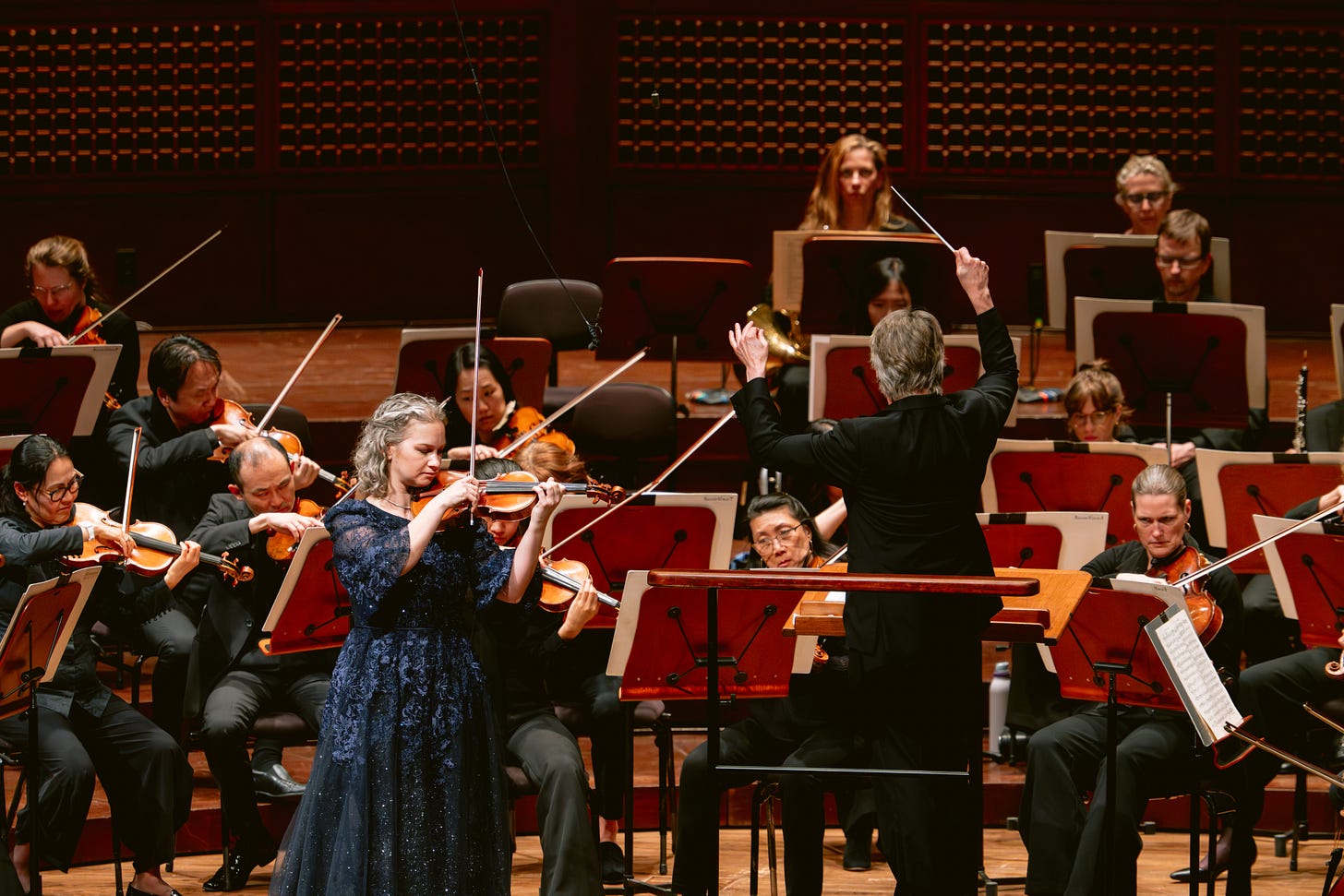
Violinist Hilary Hahn is very cool, in several senses of the word. She is, most obviously, a crackerjack musician, who matches superb technique with a restless curiosity about her instrument’s possibilities. But she also maintains a low expressive temperature, playing with impassive precision and rarely letting her heart get anywhere near her sleeve.
In this respect, she’s a perfect match for Esa-Pekka Salonen, and that congruity of temperament was one of the things that made the San Francisco Symphony’s matinee performance of the Beethoven Violin Concerto on Thursday so successful. Hahn, as she so often does, seemed to have planned out the entire thing in advance — making decisions about where to forge ahead and where to taper off, and balancing every nuance of the interpretation just so. It’s the kind of approach that might seem bloodless if not for the fact that Hahn’s decisions are always so persuasive, and her playing so pointedly beautiful.
Salonen led the orchestra in a sleek, polished account whose tone was set in the first measure by timpanist Edward Stephan’s practically subliminal delivery of the concerto’s opening heartbeat. Beethoven’s Fourth Symphony, which occupied the program’s first half was just as sleek but a bit more heated — especially in the powerful opening movement, taken at a brisk tempo with plenty of sharp edges, and in the triumphant finale. The Fourth Symphony, along with the Eighth, is the great hidden treasure of Beethoven’s orchestral legacy, and this was a performance to remind a listener why.
Elsewhere:
Rebecca Wishnia, San Francisco Chronicle/SFCV: “After the orchestra’s elegant introduction, Hahn’s superpowers were on display from the first ascending octaves through the final chords. The bravura passages, in which she exerted extraordinary control over the dropping of her left-hand fingers, were brilliant and clear. The slow movement’s variations were lacy fine, the wispy high notes resounding like tiny, perfect bells.”
Cryptic clue of the week
From Out of Left Field #270 by Henri Picciotto and me, sent to subscribers last Thursday:
Descartes’ conclusion about male religious leader (4)
Last week’s clue:
Enamored of small winter accessory (7)
Solution: SMITTEN
Enamored: definition
small: S
winter accessory: MITTEN
Coming up
• Volti: For nearly half a century, conductor Robert Geary’s chamber chorus has dedicated itself to cultivating and commissioning a wide range of contemporary vocal music. The season’s concluding program, an exploration of environmental themes in music, features the world premiere of Mark Winges’ The Guardians of Yggdrasil, based on Norse mythology, along with a reprise of Caroline Shaw’s Ochre. June 6-8, Z Space, San Francisco. www.voltisf.org.
• International Klein Competition: The Bay Area’s venerable competition for string players, which has nurtured the career of many young violinists, violists, cellists, and bassists, is celebrating its 40th season. As always, the final rounds are open to the public, who can hear promising artists perform a solo piece by Bach, a single concerto movement, and a newly commissioned premiere by composer John Harbison. June 7-8, San Francisco Conservatory of Music. www.californiamusiccenter.org.
• Martha Anne Toll: In her new novel Duet for One, writer Martha Anne Toll conjures up the emotionally volatile world of chamber music with a combination of wit, empathy, and eroticism that draws the reader in with a firm but gentle hand. In a public event combining literature with music, Toll reads from the novel along with performances by pianist Gwendolyn Mok and others. June 8, The Hillside Club, Berkeley. www.hillsideclub.org.





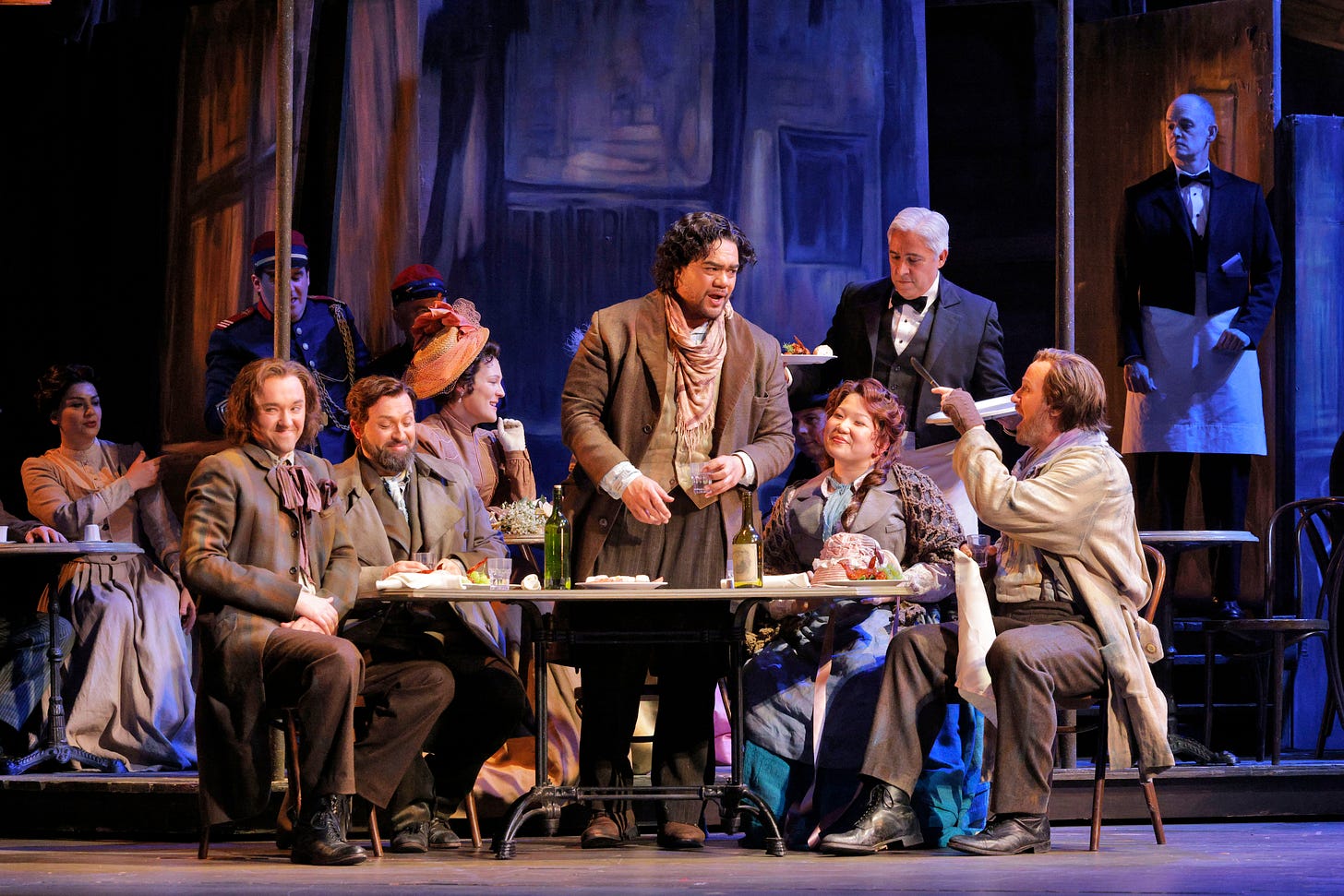
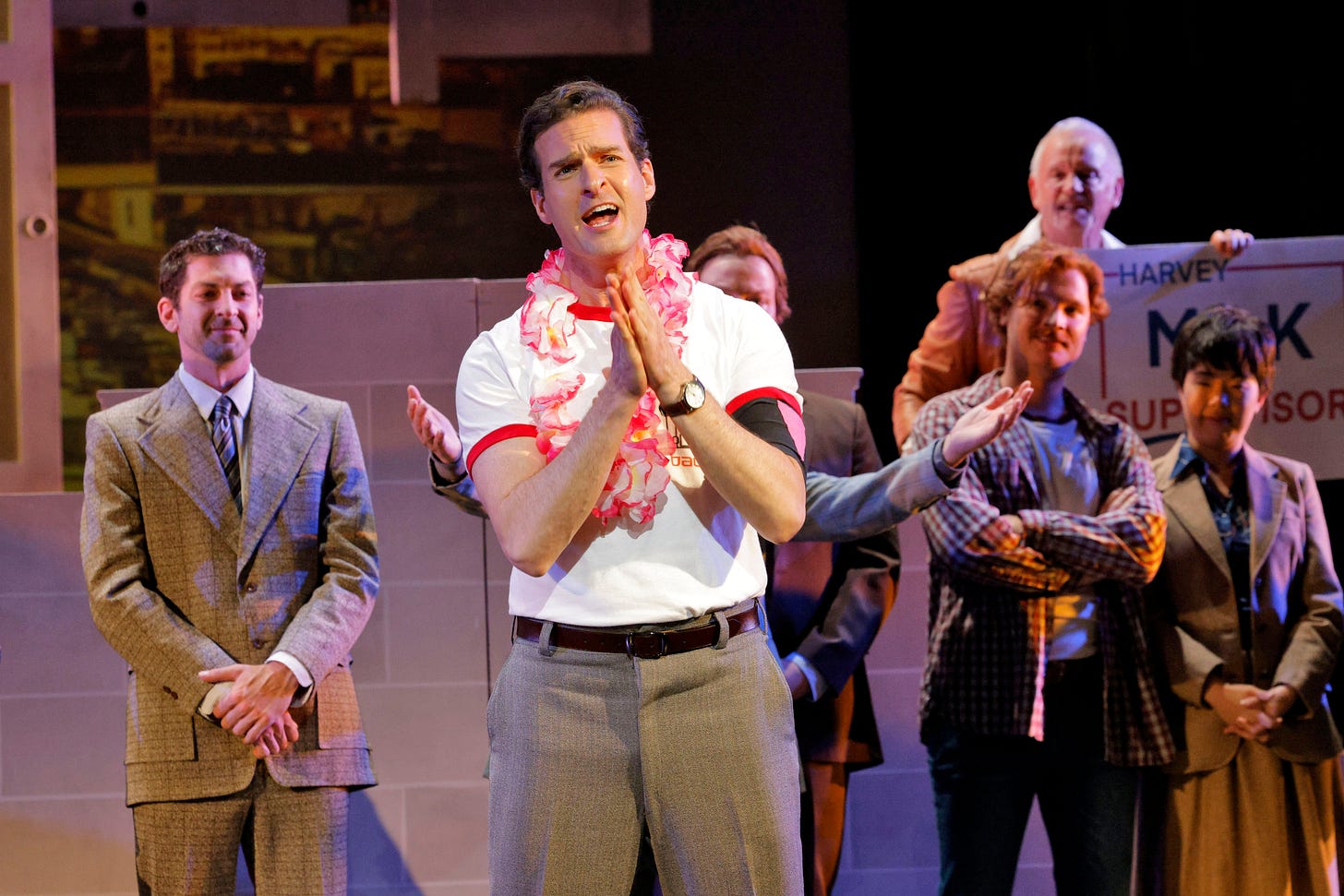
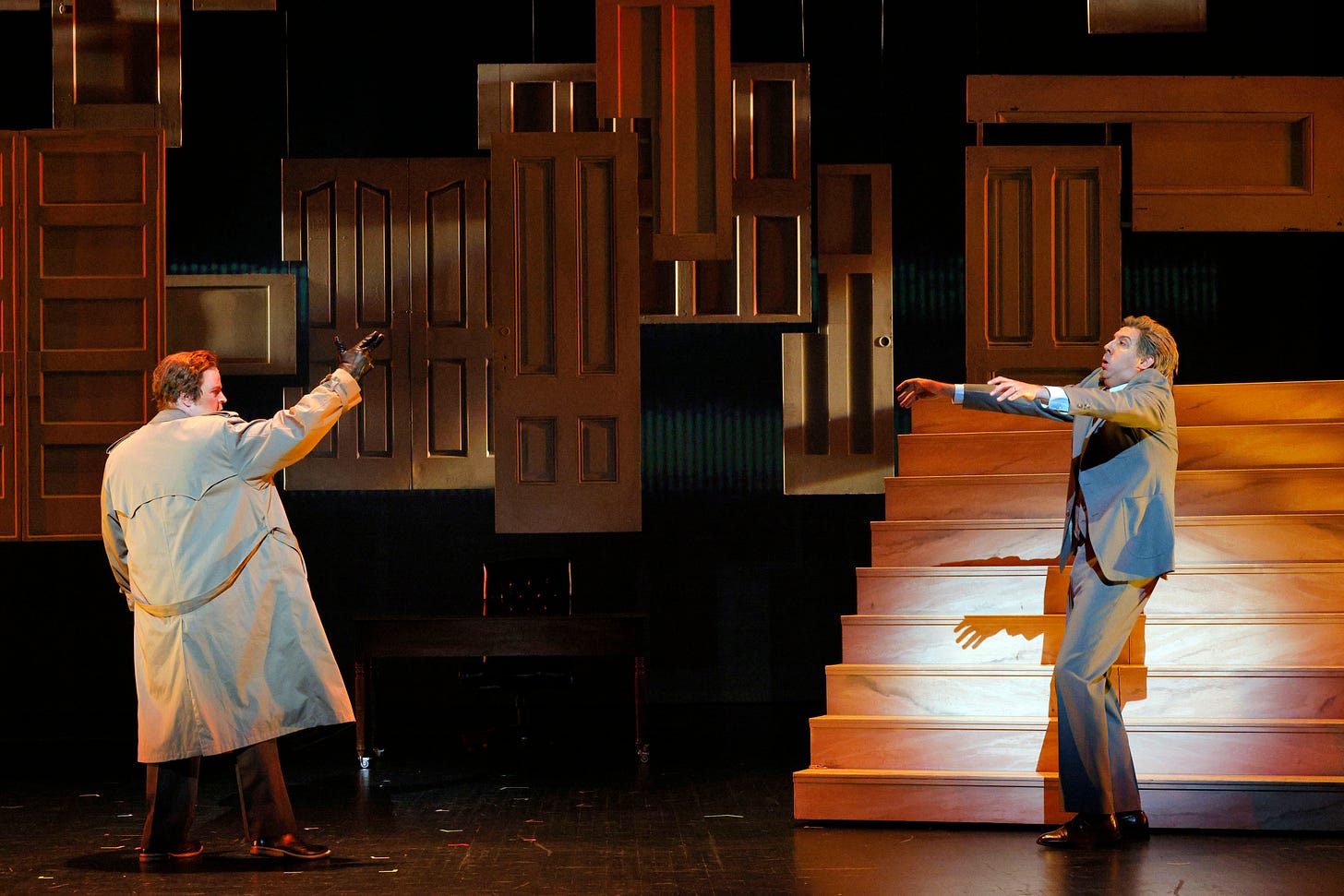
"Condensed Milk" was worth the price of admission.